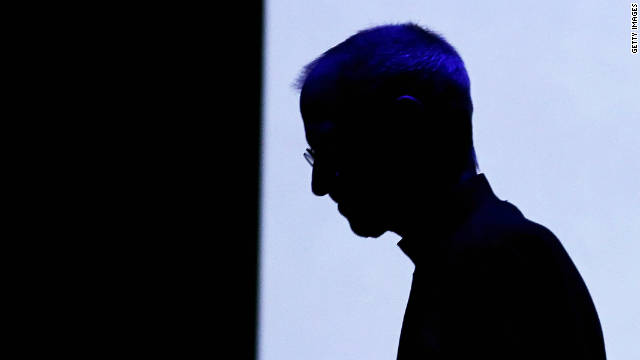We recently discussed the biblical view of the soul and the spirit to describe the immaterial man. It was interesting to see how this secular article describes the impact of the immaterial man, Steve Jobs, by referencing his heart, his flaws and his humanity. Milian attempted to define Jobs’ inner man in terms of the heart which drove his intellect. He wrote to reveal the heart that led him to embrace certain values which his company reflects, sells and helped build into our cultural fabric.
Monday, October 10, 2011
The Immaterial Steve Jobs
Many are mourning the passing of an American icon whose impact is fascinating to consider. Last week CNN Journalist Mark Milian’s article, The Spiritual Side of Steve Jobs, published the day after the information technology pioneer passed away, brought a sudden awareness of a cultural timeline. For many Steve Jobs' life and innovations mark the technological progression of our society and the resulting information age that he helped usher into our lifestyle over the last 30 years. Milian gives an inside look at the heart of Steve Jobs. He explores his up-bringing and implies some developmental dysfunction that shaped the inner drive of the man whose ingenuity and values became the defining DNA of the Apple Corporation. The article exposes the flawed humanity and spiritual journey of the company’s founder and re-creator. Milian discusses Jobs’ conversion to Buddhism, a dark season in Jobs’ personal life and an unhealthy work culture at Apple that he asserted as admirable. Milian quotes Jobs as saying when interviewed: "You'd be surprised how hard people work around here. They work nights and weekends, sometimes not seeing their families for a while. Sometimes people work through Christmas to make sure the tooling is just right at some factory in some corner of the world so our product comes out the best it can be."
Our class discussion on the biblical view of the heart concluded that it was the “intellectual seat, center of the emotional life and the seat of volitional will.” Those components could form headings for an outline of Milian’s article with an alternate title: The Impact of the Immaterial Life of Steve Jobs. He concludes his work by saying that Jobs' remaining team of executives adopted his values and persona in significant and distinct parts. A key Jobs' mantra represents the heart as the “seat of volitional will”. His mantra as a minimalist presents a productive business strategy. Milian quotes John Sculley, CEO of Apple, who says this about the uniqueness that made Jobs great, “What makes Steve's methodology different from everyone else's is that he always believed the most important decisions you make are not the things you do, but the things you decide not to do." This ethic permeates the culture of Apple. One measure of the immaterial man is found in the lasting imprint of his values and is best explained, not merely with the intellect, but with emotion and heart. It is ironic to find heart language exuding from the life of impressions of this notable information technology pragmatist.
Subscribe to:
Post Comments (Atom)

No comments:
Post a Comment
Note: Only a member of this blog may post a comment.